View all Standards for Virginia Standards Of Learning (2020)
TIII.1 The student will demonstrate playwriting.
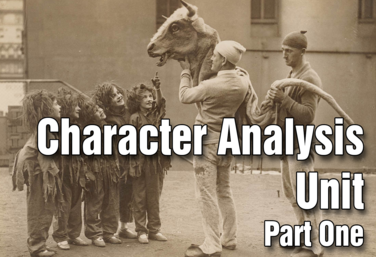
UNIT
Part of the Drama Two Curriculum
Character Analysis - Part 1
by Matt Webster
The Drama Two Curriculum has been developed to expand and deepen students’ skills as artists. In this unit, students will explore character analysis, which is key to developing three-dimensional characters in monologues, scenes, and plays. In Part 1, they will start with Uta Hagen’s nine questions for character analysis.
Read More
about Character Analysis - Part 1
Read Less
about Character Analysis - Part 1
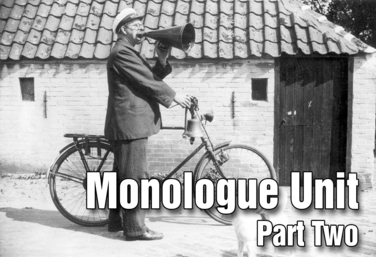
UNIT
Part of the Drama Two Curriculum
Monologues - Part 2
by Matt Webster
In Part 2 of the Monologue Unit (Monologue Project: Analysis, Writing, and Performance), students analyze an existing monologue to determine the criteria for a “good” monologue. They will then apply what they learned in Part 1 (Monologue Writing Made Easy), adding in the criteria for a “good” monologue, to write and perform an original monologue.
Read More
about Monologues - Part 2
Read Less
about Monologues - Part 2
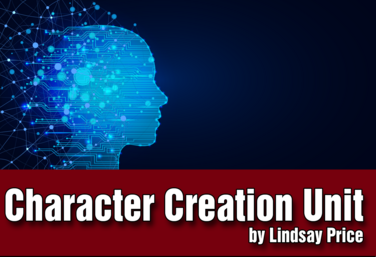
UNIT
Character Creation: Superhero Series: Multi platform
by Lindsay Price and Kerry Hishon
This unit focuses on character creation: How do you create a character from the ground up? Use this unit as a precursor to a playwriting unit, to a devising unit, or to a class production.
Using the archetypes of the superhero, the sidekick, and the supervillain, students work on exercises to help them create unique characters through physical and vocal qualities, character profiles, and theatrical writing.
Because many of the exercises have an individual focus, this unit works in a distance learning environment or for your no-technology students.
Read More
about Character Creation: Superhero Series: Multi platform
Read Less
about Character Creation: Superhero Series: Multi platform

UNIT
Perspective Taking
by Lindsay Price
Perspective taking is the ability to understand a situation from another person’s perspective or point of view: What are they thinking? What are they feeling? How does their background influence their perspective? Perspective taking allows students to develop self-awareness, to recognize differences, to understand an opposing point of view, to assess nonverbal language, and more.
In this unit, students will practice perspective taking as they:
• Assess their own perspective.
• Demonstrate understanding of the perspective of others in specific situations.
• Analyze characters in a text.
Read More
about Perspective Taking
Read Less
about Perspective Taking
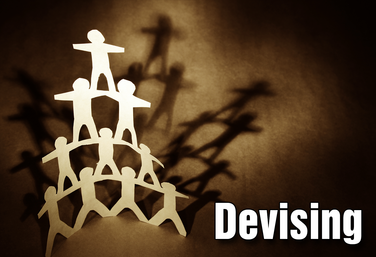
UNIT
Part of the Drama Two Curriculum
Devising
by Corinna Rezzelle
While the Drama Two Curriculum has a focus on acting, it’s always important to include a unit on the technical theatre skills that are necessary to any production. Students will also be able to use what they’ve learned in this unit in their upcoming devising project.
Students will begin by exploring design for the stage by experimenting with line, shape, texture, size, and color. They will expand their understanding of stage properties and scenic flats. They will then apply their knowledge of these building blocks of design to create a high-concept design for a miniature “stage.”
Read More
about Devising
Read Less
about Devising
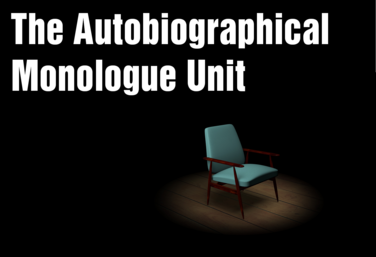
UNIT
The Autobiographical Monologue
by Gai Jones
All students have something to say and a story to tell. They can relate to their personal stories better than anyone else. All students have a lot of material which can be used as part of an original monologue.
In this unit, students will write an autobiographical monologue based on their personal expertise, memories, distinct point of view, sense of truth, and life experiences.
Through the process, students will be encouraged to explore past stories, objects, and images and other personal material.
Read More
about The Autobiographical Monologue
Read Less
about The Autobiographical Monologue
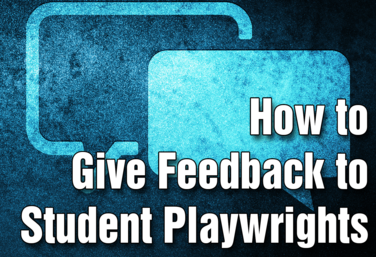
PD COURSE
How to Give Feedback to Student Playwrights
by Nicholas Pappas
The two big questions we’re going to answer in this course are: What is feedback? And, What is useful feedback? Now, if you asked a hundred people to answer these two questions, you’ll likely get a hundred different answers, but at its core, all the answers will focus on giving notes that will improve the work, which, in this case, is our student’s plays. And, as a teacher, that’s what your hope is, right? To help your students improve as writers, one work at a time.
We want our students to write, and to grow through their writing. If we want our students to get better, we need to get better. Understanding the definition of feedback, and understanding how to provide useful feedback is the key to all of us getting better.
Join Nick Pappas in this course designed to give you the tools to help your student writers find their voice.
Read More
about How to Give Feedback to Student Playwrights
Read Less
about How to Give Feedback to Student Playwrights

PD COURSE
Playwriting Outside the Lines
by Steven Stack
Instructor Steven Stack leads this course in a unique way to teach playwriting. He will show you how to set foundations and guide posts for your students, and then give them freedom to play. The intent is to help students develop their own voice and create for creating sake. The 5 modules lead teachers through how to use this style of teaching playwriting, and includes handouts and resources to support the learning.
Read More
about Playwriting Outside the Lines
Read Less
about Playwriting Outside the Lines
View all Standards for Virginia Standards Of Learning (2020) Standards Master List